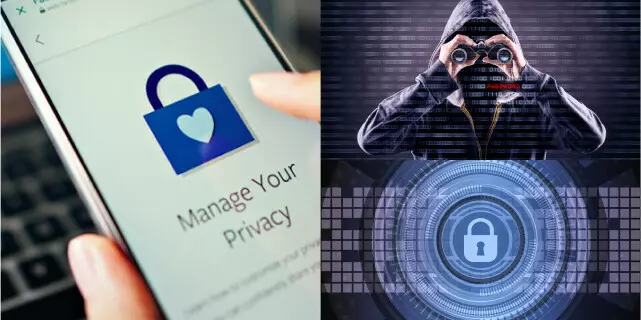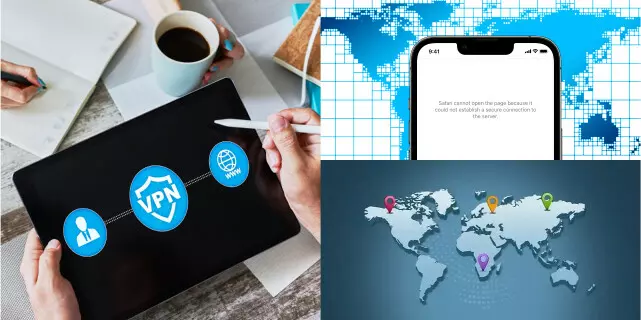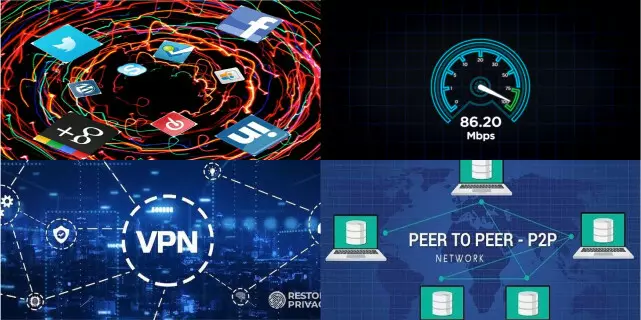Understanding the Importance of a VPN
Virtual Private Networks, or VPNs, have become an essential tool for maintaining privacy and security online. With an increasing number of data breaches, cyber attacks, and government surveillance, the importance of a VPN cannot be overstated. By creating an encrypted connection between your device and the internet, VPNs hide your online activities and personal information from prying eyes.

This can protect you from hackers, identity theft, and unwanted tracking. A VPN also allows you to bypass internet censorship and geo-restrictions, giving you access to a wider range of websites and content. With the growing importance of privacy and security online, understanding the benefits of a VPN is becoming increasingly crucial.
How a VPN Protects Your Online Privacy and Security
A Virtual Private Network (VPN) is a tool that provides online privacy and security by encrypting all internet traffic between your device and the VPN server. This protects your online activities, including passwords and sensitive information, from being intercepted by hackers, governments, and ISPs. When you use a VPN, your IP address is hidden and replaced with the IP of the VPN server, making it difficult for third parties to track your online activities and location. Additionally, VPNs provide a secure connection even on public Wi-Fi networks, which are often vulnerable to hacking and surveillance. With a VPN, you can browse the internet freely, knowing that your data is protected from prying eyes. Whether you are working from home, traveling, or just concerned about your online privacy, a VPN is an essential tool for protecting your online privacy and security.
Common Uses for a VPN
A Virtual Private Network (VPN) is a versatile tool that can be used for a variety of purposes. One of the most common uses is to protect your online privacy and security by encrypting your internet traffic. With a VPN, your internet service provider (ISP) and government cannot monitor your online activities, making it a great option for users who are concerned about online privacy. Another common use is to bypass internet censorship and access websites that are restricted in your country.

For example, if you are traveling abroad and want to access streaming services like Netflix or Hulu, a VPN can help you do so. Additionally, a VPN can help you access content that is geo-restricted, such as sporting events or movies. Furthermore, a VPN can improve your online security by encrypting your data and protecting it from hackers, even when you are using public Wi-Fi networks. Overall, a VPN is a useful tool that offers a variety of benefits, making it a must-have for anyone who values their online privacy and security.
Types of VPNs: Free vs Paid Options
Virtual Private Networks, or VPNs, are becoming increasingly popular as more people seek to protect their online privacy and security. There are two main types of VPNs: free and paid options. Free VPNs are often seen as a quick and easy solution, but they come with several limitations. Firstly, free VPNs often have slower speeds and lower bandwidth limits, making them unsuitable for heavy internet users. Secondly, free VPNs are often supported by ads and may sell user data to third-party companies, which undermines the privacy that VPNs are meant to provide. On the other hand, paid VPNs offer a more reliable service, with faster speeds and unlimited bandwidth. They also provide better privacy protection and often come with added features such as malware protection and automatic kill switches. Ultimately, the choice between a free and paid VPN will depend on individual needs and budget. However, for those who prioritize privacy and security, it is usually worth paying for a premium VPN service.
Factors to Consider When Choosing a VPN Provider
Choosing a VPN provider can be a difficult task with so many options available. To ensure that you select the right VPN for your needs, there are several important factors to consider. Firstly, it is important to look for a VPN that has a solid reputation for privacy and security. This can be assessed by reading reviews and checking if the VPN has undergone independent security audits. Secondly, it is important to look for a VPN that has a good network of servers, as this will ensure that you have access to fast and stable connections.
Additionally, the level of customer support offered by the VPN provider is also an important factor to consider, as you want to be able to get help when you need it. Finally, it is important to consider the cost of the VPN, as well as the available payment options and any available discounts or special offers. By taking these factors into consideration, you can find a VPN provider that meets your needs and provides you with the best possible online security and privacy.
Understanding VPN Protocols and Encryption Standards
VPN (Virtual Private Network) protocols and encryption standards are the backbone of online privacy and security. They work together to keep sensitive data and online activities protected from prying eyes. There are several VPN protocols available, each with its own strengths and weaknesses. For example, PPTP (Point-to-Point Tunneling Protocol) is fast and simple but not as secure as other protocols like OpenVPN and IKEv2.

On the other hand, encryption standards, such as AES (Advanced Encryption Standard), ensure that data is encrypted before it is transmitted over the internet. The most common encryption standard used today is AES-256, which provides a high level of security. In conclusion, understanding VPN protocols and encryption standards is important for anyone looking to protect their online privacy and security. By choosing a VPN with a secure protocol and strong encryption, you can ensure that your online activities are protected from cyber criminals and government surveillance.
How to Set Up and Use a VPN
Setting up and using a VPN is a relatively straightforward process. To get started, you need to choose a VPN provider and sign up for an account. Once you have an account, you will need to download and install the VPN client software on your device. After installation, you can open the VPN client, select a server location, and connect to the VPN. Once connected, all of your online activity will be routed through the VPN server, which will encrypt your data and protect your online privacy. To use a VPN, you simply need to keep the VPN client running in the background while you browse the web or use the internet. Depending on your VPN provider, you may also be able to configure your VPN to automatically connect whenever you access the internet. With a few simple steps, you can enjoy the benefits of a VPN, including improved privacy and security, access to geo-restricted content, and protection from online threats.
Potential Downsides and Risks of Using a VPN
While VPNs offer many benefits, such as improved privacy and security, there are also some potential downsides and risks to consider. Firstly, VPNs can slow down your internet speed, as all of your data has to be encrypted and transmitted through a remote server. This can be especially noticeable for heavy internet users or for those who use bandwidth-intensive applications, such as online gaming or video streaming.
Secondly, some VPN providers may log user data, which could be used to track your online activities or sold to third-party companies. This undermines the privacy that VPNs are meant to provide. Finally, it is important to be aware that VPNs may not always work with certain websites or online services that are designed to block VPN traffic. This can limit your access to certain content or services. To minimize these risks, it is important to choose a reputable VPN provider that has a good privacy policy and to carefully read the terms and conditions before signing up. By taking these precautions, you can minimize the potential downsides of using a VPN and enjoy the benefits of improved privacy and security.
Conclusion: How a VPN Can Benefit Your Online Experience
In conclusion, using a VPN can have a significant impact on your online experience. By encrypting your internet connection and routing your data through a remote server, VPNs can provide you with improved privacy and security. This can help to protect your personal information and prevent unauthorized access to your data. Additionally, VPNs can also help to bypass geographical restrictions, allowing you to access content that may otherwise be unavailable in your location.

Furthermore, VPNs can also help to protect you from online threats, such as malware and hacking attempts, by encrypting your data and providing additional security features. With these benefits in mind, it is clear that a VPN can greatly enhance your online experience by providing you with improved privacy and security, as well as greater freedom to access the content and services that you want. Whether you are an individual, a business, or an organization, using a VPN can help to protect your online privacy and security, and give you peace of mind when accessing the internet.







